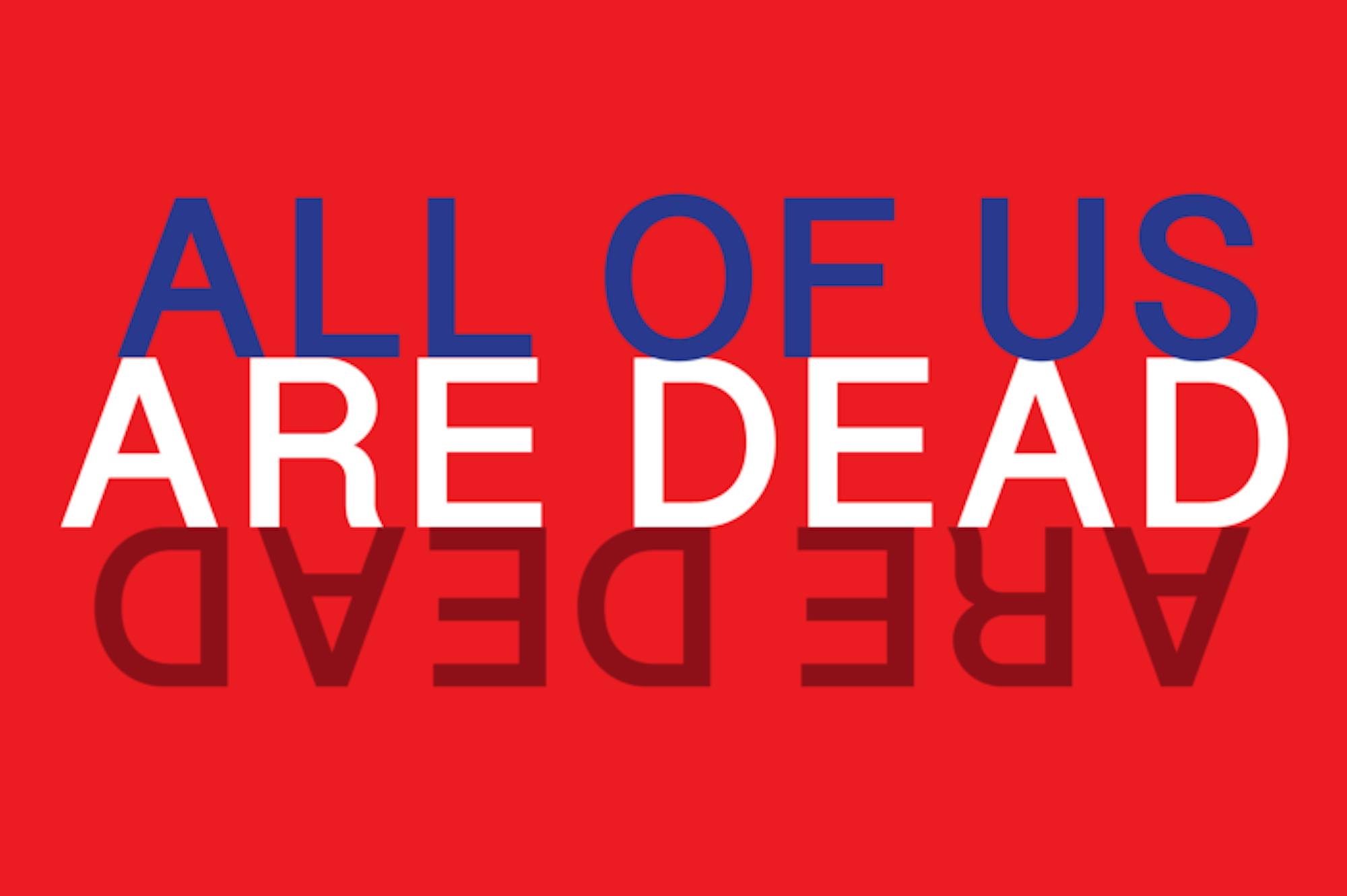
Emma Kirner | The Observer
Emma Kirner | The Observer
When watching foreign shows, the creators’ culture often dilutes in translation. But Netflix’s newest original, “All of Us Are Dead,” goes above and beyond to keep South Korean culture at its core. This webtoon-inspired show explores every socioeconomic angle of the stress-ridden life of South Korean high schoolers. Test scores and bullying are bad enough, but when the high school becomes ground zero of a zombie apocalypse, the entire city falls into ruin.
While many productions stalled or were limited due to Covid, the scale of "All of Us Are Dead" is mind blowing. Hordes of infected sprint through hallways and streets, banging against each other while yanking survivors through barricaded windows. Close calls have the infected go face-to-face with the main cast, their humid breath and blood dripping onto the humans’ terrified expressions. The classrooms become claustrophobic safe havens with twenty pairs of teeth and hands pressed against the other side of the doors. Filming a show at this level of intense action is impressive by itself, but having to deal with Covid in scenes of thirty actors pretending to be in a different pandemic is ironically terrifying.
The zombies in this show are fantastic. Each transformation utilizes grotesque contortions and cackling screams, bringing a blood-pumping physicality to emotional sacrifices and failures. They are more than rabid track-stars or undead shufflers. The brilliance of the nature of the virus is that expands on every aspect of zombie fiction; it's activated as a mutation of fight-or-flight hormones, so the more a character is accused of being sick, the faster the virus gestates inside them. So, when the rich, popular girl escalates the tension by pointing someone out, she’s never in the wrong, making her antagonism even more frustratingly genius.
Socioeconomic status and seniority are everything to these characters. In most zombie narratives, the characters always ask each other what they ‘were’ before it happened, but in this show, they don’t just look back fondly to their career — they cling to it as their identities. Group dynamics completely shift because a teacher enters the room, or a suit reveals a politician. The high school pecking order is decided by wealth: the class president being the daughter of the biggest donors, and the popular girl having command over the boys because she lives in a gated community and they’re on welfare. The rigid structure of class traps every classmate and citizen, forcing the poor to do all the work while the rich point and accuse them of being infected. This divide is shown visually as well, with the rich and powerful wearing clean, pinkish clothing, while the poor’s green school-uniforms or firefighter suits are torn and covered in blood. Positioning class as the main antagonizing force elevates this story beyond a simple zombie survival. It pits politics against the very situations their rules were made to protect people from, yet it ends up abandoning them when they need it most.
There’s just one problem: The show is too long. Watching 12 hour-long episodes drained me. The episode-ending hooks chop emotional beats in half just to force you to hit “next episode.” Early deaths are merciless and heartbreaking, but later threats become cheap fake outs when it’s only the essential main characters left. The best elements are perfectly represented in the first three episodes, which are only recycled through the rest of the season over and over again with little variation. The explosive ending brings a ticking clock to add needed adrenaline, but the final resolution spoils the regained energy and falls flat.
I highly recommend the beginning of this show, but it comes with a warning. The zombies are intense, and the emotions really punch. In the end, there were too many storylines and fake outs to really center my focus. Finishing the story feels like a marathon, and when the final credits rolled 12 hours later, I was left wanting.
Title: "All of Us Are Dead"
Starring: Park Solomon, Lee Yoo-Mi
Directors: J.Q. Lee, Kim Nam-Soo
If you liked: "Train to Busan," "Parasite"
Shamrocks: 3 out of 5 shamrocks









